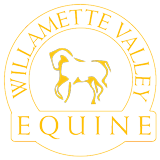Vaccines
The following information can be found on the American Association of Equine Practitioner’s website
CORE VACCINATION GUIDELINES
The AVMA defines core vaccinations as those “that protect from diseases that are endemic to a region, those with potential public health significance, required by law, virulent/highly infectious, and/or those posing a risk of severe disease. Core vaccines have clearly demonstrated efficacy and safety, and thus exhibit a high enough level of patient benefit and low enough level of risk to justify their use in the majority of patients. The following equine vaccines meet these criteria and are identified as ‘core’ in these guidelines:
These are vaccinations included in a vaccination program after the performance of a risk-benefit analysis. The use of risk-based vaccinations may vary regionally, from population to population within an area, or between individual horses within a given population. Disease risk may not be readily identified by laypersons; it is important to consult a veterinarian when developing a vaccination program. The following vaccines are considered important in our area:
CORE VACCINATION GUIDELINES
The AVMA defines core vaccinations as those “that protect from diseases that are endemic to a region, those with potential public health significance, required by law, virulent/highly infectious, and/or those posing a risk of severe disease. Core vaccines have clearly demonstrated efficacy and safety, and thus exhibit a high enough level of patient benefit and low enough level of risk to justify their use in the majority of patients. The following equine vaccines meet these criteria and are identified as ‘core’ in these guidelines:
- Tetanus
- Eastern/Western Equine Encephalomyelitis
- West Nile Virus
- Rabies
These are vaccinations included in a vaccination program after the performance of a risk-benefit analysis. The use of risk-based vaccinations may vary regionally, from population to population within an area, or between individual horses within a given population. Disease risk may not be readily identified by laypersons; it is important to consult a veterinarian when developing a vaccination program. The following vaccines are considered important in our area:
- Equine Herpesvirus (Rhinopneumonitis)
- Equine Viral Arteritis
- Equine Influenza
- Strangles
New USEF regulations require proof of your horse's current vaccines for shows. In order for us to provide you with a vaccine certificate the vaccines must be given by a Willamette Valley Equine veterinarian or staff member. Please call the office if you have any questions.
Deworming for Internal Parasites
The following information can be found on the American Association of Equine Practitioner’s website
Internal parasites, or worms, are silent thieves and killers. They can cause extensive internal damage without you even realizing your animals are heavily infected. The effects of internal parasites on a horse range from a dull haircoat and unthriftiness to colic and death. Internal parasites lower the horse’s resistance to infection, rob the horse of valuable nutrients, and in some cases cause permanent damage to the internal organs.
TYPES OF INTERNAL PARASITES
There are more than 150 species of internal parasites that can infect horses. The most common and troublesome are the following:
DESIGNING A DEWORMING PROGRAM
There are two basic types of deworming programs:
Internal parasites, or worms, are silent thieves and killers. They can cause extensive internal damage without you even realizing your animals are heavily infected. The effects of internal parasites on a horse range from a dull haircoat and unthriftiness to colic and death. Internal parasites lower the horse’s resistance to infection, rob the horse of valuable nutrients, and in some cases cause permanent damage to the internal organs.
TYPES OF INTERNAL PARASITES
There are more than 150 species of internal parasites that can infect horses. The most common and troublesome are the following:
- Large strongyles (bloodworms or redworms)
- Small strongyles
- Roundworms (ascarids)
- Tapeworms
- Lungworms
- Pinworms
- Bots
- Threadworms
DESIGNING A DEWORMING PROGRAM
There are two basic types of deworming programs:
- Continuous— feeding a daily dewormer year-round or throughout the grazing season
- Strategic— deworming only at certain times of the year or when fecal egg counts rise
Coggins and Health Certificates
Coggins are certificates that are issued when a horse is tested for Equine Infectious Anemia (EIA). Most states require these for travelling horses to ensure that EIA, which is highly contagious, is not spread. Health Certificate (CVI's) are also required for most travel across state lines to ensure that horses are examined by a veterinarian prior to any travel to prevent the spread of other disease conditions. Some states may also require a permit for entry into their state.
Comprehensive Dental Care
One of the best things you can do for the health of your animal is a proper diet and frequent dental care. Willamette Valley Equine performs complete dental work. Avoid unnecessary emergency costs and make a checkup appointment today.
